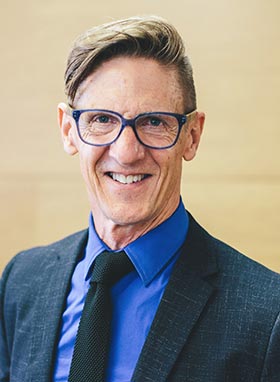 This phenomena is due to declining birth rates, longer lifespans and the last of the baby boomer generation reaching 65. Particularly noticeable is the increase in those aged 85 and over, including those living beyond 100.
This phenomena is due to declining birth rates, longer lifespans and the last of the baby boomer generation reaching 65. Particularly noticeable is the increase in those aged 85 and over, including those living beyond 100.
Health and wellbeing innovations have resulted in more older adults living well for longer. Consequently, an ageing population is something to celebrate. Society should recognise and appreciate the knowledge, wisdom and expertise older adults bring and contribute to society. Unfortunately this is not always the case. Older adults live in an ageist world.2
Ageism is the purposeful, systematic stereotyping and discrimination of people based on age.3 Ageing is no longer seen as a natural process but as a physical, social and economic problem. An example is the way the media describes increasing numbers of older people as a “grey tsunami”, as if society needs to protect itself from a fast-approaching disaster.
Nurses are in a privileged position as we work with people across the lifespan and in a variety of settings. We have some understanding of what it means to be older and the associated health and wellbeing issues this group experiences. In addition, our work frequently occurs with older people who are vulnerable. As a nurse and social gerontologist, I am saddened to witness many instances where older people experience ageism, including from nurses. This is evident in many nursing texts which depict older adults negatively as a set of actual or potential health problems needing to be “fixed”.4 While I do not deny the importance of providing nursing care to older adults who are unwell, I notice the lack of alternative viewpoints – instances where the positive aspects of ageing are presented within nursing education, practice and research.
Nursing must be prepared to provide nursing services that meet the needs of a very diverse group of older adults, spanning community, hospital and long-term care. Consequently, I am offering what I consider to be three important points that will help nursing address ageism. Each of these points appropriately aligns with our mandate to provide culturally safe and appropriate nursing care.
Firstly, remember older adults represent a diverse group of people with a variety of strengths and abilities. In Aotearoa, you are deemed an older adult at age 65, the age when you are eligible to receive government superannuation. Consequently, there are generational differences between a 70-year-old and a 90-year-old. Nurses need to recognise and accommodate these generational differences when providing a care service.
Focus on social aspects
Secondly, nursing should consider adding social gerontological concepts to our repertoire when engaging with older people. This would enable a focus on the social aspects of ageing, including challenging assumed assumptions and influences that affect older people’s wellbeing. These include political, economic, biological and socio-cultural factors, and may include replacing the term health with wellbeing. Wellbeing is a broader and more inclusive term that incorporates health and better reflects the realities of living as an older person, regardless of whether they live in a residential facility or in the community. This re-languaging assists with taking a strengths- rather than a deficit- and disease-focused approach when interacting with older citizens.
Finally, stop referring to older people as elderly. The language we use both shapes and reflects our values, and influences our attitudes toward older people. Media indiscriminately refer to older people as “elderly”. Elderly is a valid term to use when referring to those older people who are frail and have been assessed as being frail, using an appropriate frailty measure. However, elderly is used indiscriminately as an encompassing term for all older people, ie anyone 65 and over. As an editor for the Journal of Clinical Nursing, I have changed the authorship guidelines to ban the use of elderly and replace it with more inclusive terms.
There is no doubt nurses make a significant and ongoing contribution to the wellbeing of older people. We are important connecting points for communities and many older adults unquestioningly trust us. Therefore, it is important nurses hold true to our profession’s core values and attributes.
Older people have significant experience and wisdom that should be recognised and valued. As we engage with this group, we need to remember it is a human right that all older adults, regardless of where they live or their abilities, live in an environment that is age-inclusive rather than ageist.
Stephen Neville, RN, PhD, is the head of department (nursing) and director of the AUT Centre for Active Ageing at the Auckland University of Technology.
References
- Statistics NZ. (2019). 2018 Census population and dwelling counts.
- Neville, S. (2020). Reflections on #COVID19nz: Older people and age-friendly nursing. Nursing Praxis in Aotearoa New Zealand, 36(2), 4-6.
- Butler, R. (1995). Ageism. In G. Maddox (Ed.), The Encyclopaedia of Aging (2nd ed, pp. 38–39). New York: Springer.
- Neville, S., Montayre, J., & Jackson, D. (2019). What’s in a name: How nursing positions older people negatively. Journal of Clinical Nursing, 28(11-12), 2033-2034.



